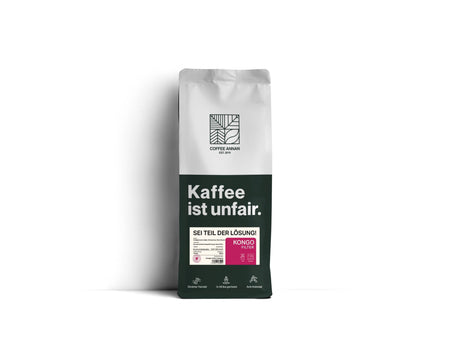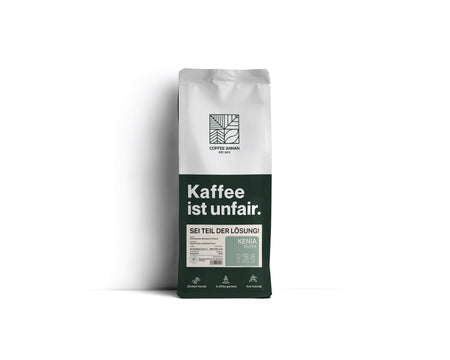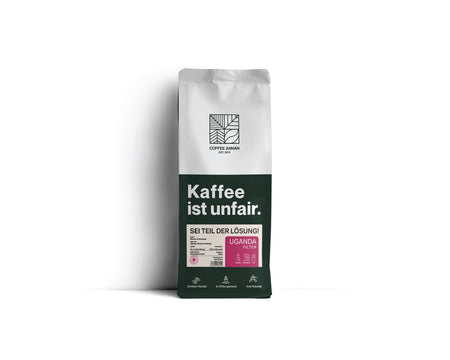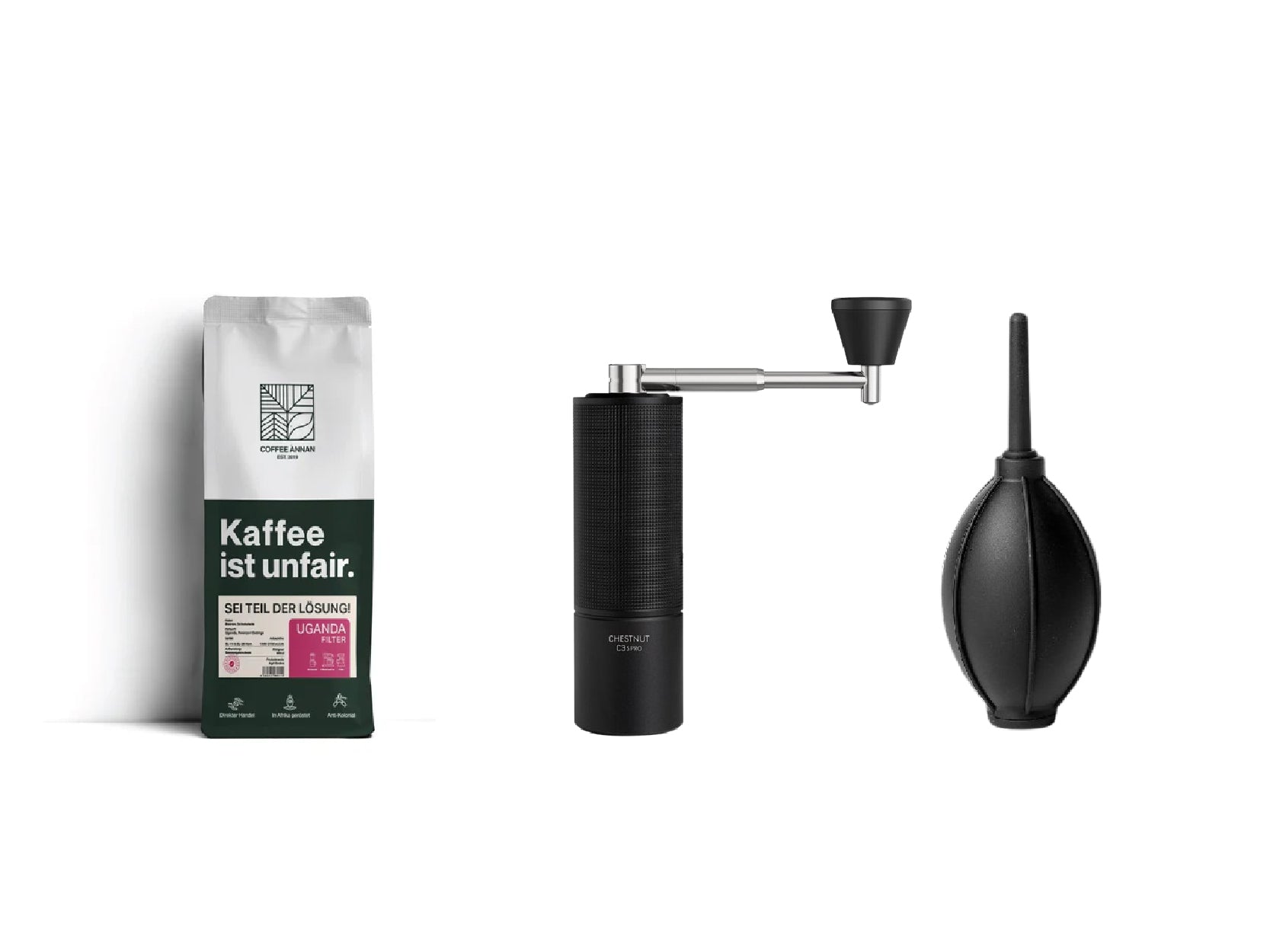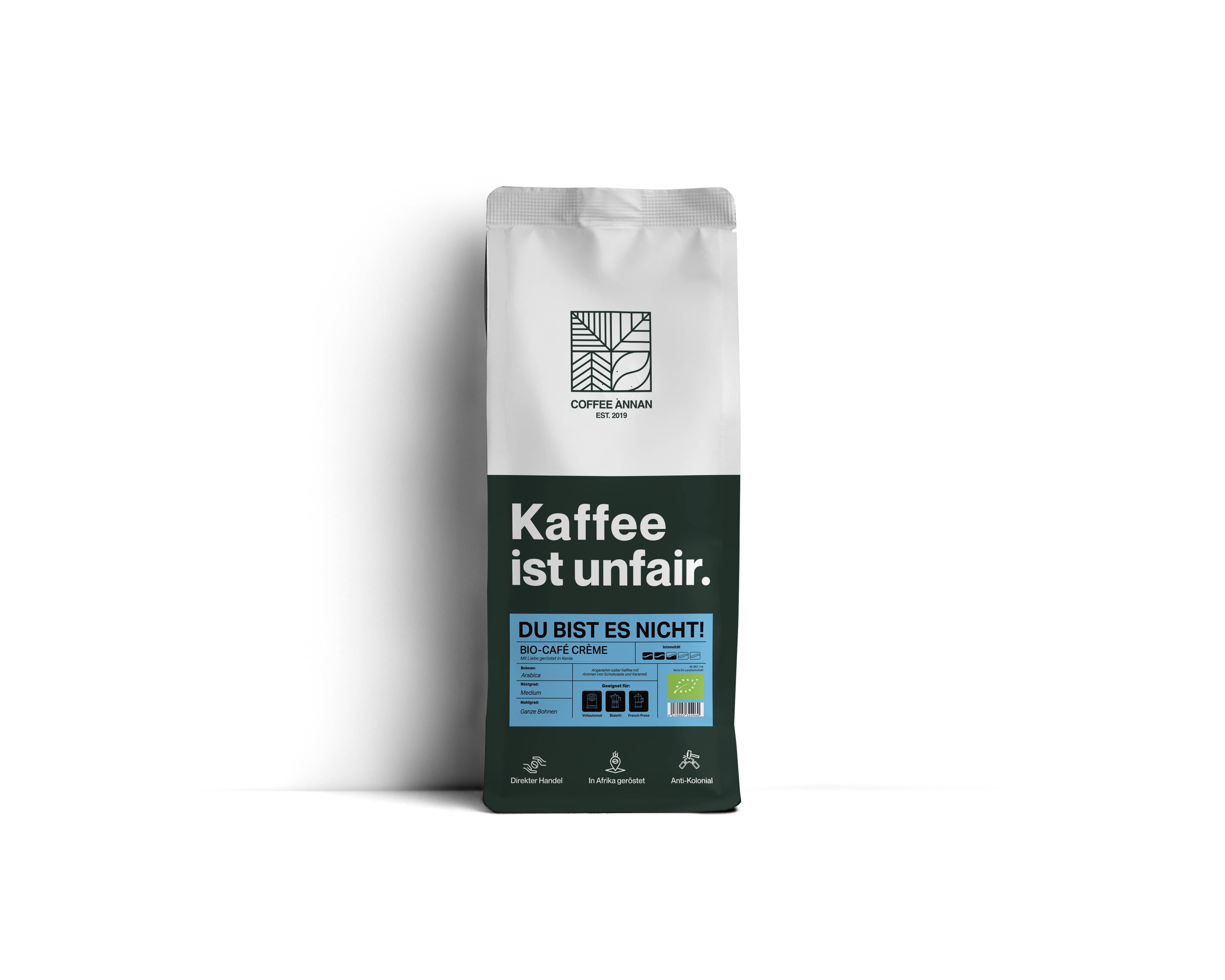Coffee tastes bitter: With these 5 tips you can brew a delicious coffee
A good coffee is characterized by the interplay of different notes. Bitter substances are also part of the character of a coffee. However, it can happen that your coffee tastes too bitter and is no longer enjoyable. What could be the reason for this? Did you do something wrong when preparing it? Or is it the beans?
We have put together five helpful tips for you to effectively prevent your coffee from becoming too bitter. We will cover the right water temperature, roasting and grinding level, among other things. We will also introduce you to some products from our range that will help you on your way to an aromatic coffee.
Coffee tastes bitter: Important interaction of all flavors:
Coffee consists of different flavors, including bitterness – but it should not be too overwhelming.
Learn moreTip 1: Check the water temperature:
Water that is too hot can bring out the bitterness in the coffee more – the temperature should be between 92 and 96 °C.
Learn moreTip 2: Don’t buy a dark roast with a lot of bitterness:
Dark roasts have a lot of bitter substances and are often roasted aggressively – opt for light roasts instead.
Learn moreTip 3: Don’t grind your beans too finely:
Beans that are ground too finely can develop a bitter taste – make sure you grind them correctly.
Learn moreCoffee tastes bitter: Important interaction of all flavors
When you drink a cup of coffee, you can expect a variety of flavors. In addition to sweetness and acidity, there is also bitterness, which is contained in caffeine and chlorogenic acid, among other things. The individual flavors complement each other and form a delicious overall taste that consists of many different notes.
So it is good and even desirable for coffee to taste bitter. However, the aroma should be balanced: if the coffee only tastes bitter so that you can no longer perceive any other flavors, then there seems to be a problem. With the tips from the next five chapters, you will certainly succeed in achieving a delicious taste in the coffee.
Tip 1: Check the water temperature if the coffee tastes bitter
Have you made yourself a coffee or espresso and are disappointed to find that it tastes far too bitter? The water has a big influence on the final taste. Since your coffee is made up of about 95% water, you should first check the water and how you use it.
To ensure that your coffee tastes good and develops its aromas as best as possible, a temperature of 92 to 96 °C is recommended. You should therefore never prepare your coffee with boiling water: the high temperatures can cause your coffee to become bitter. The same applies if the water is too cold. Then the coffee can taste sour.
We therefore recommend that you use a special kettle whose temperature you can adjust. For this we recommend our Fellow Stagg EKG kettle . Alternatively, you can boil water and then leave it for a minute so that it loses some of its temperature.
Measure the hardness of your water
It is not just the water temperature that is important for your coffee enjoyment, but also the degree of hardness. If the water in your region is particularly hard, this can affect the taste. Hard water contains a lot of lime and other minerals: These can change the aroma of the coffee. If coffee tastes bitter, the water could also be the cause: With a water filter, you can reduce the degree of hardness and thus ensure that the coffee tastes significantly better in the future.
Tip 2: Do not buy a dark roast with a lot of bitter substances
In addition to the water, the coffee bean itself is of course also crucial for how your coffee tastes. There are several factors that can contribute to a very bitter taste.
One of these is the roasting: the darker the beans are roasted, the more bitter substances they develop. So it can happen that the coffee has a very bitter aroma even before it is prepared and that it is not at all due to your preparation. This is the case with Robusta coffee, for example, which is particularly dark and bitter. Arabica, on the other hand, is much milder.
Many types of coffee are roasted aggressively for cost reasons: they are heated to high temperatures in a very short time and thus acquire a bitter aroma. When roasting, gentle drum roasting is therefore preferable.
The coffee beans in our range are all gently roasted and thus develop their natural aroma. We offer you specialty coffee , which is of a particularly high quality and is roasted by us directly in the country where it is grown. Convince yourself of the aromatic and fair taste.
Tip 3: Don’t grind your beans too finely
In addition to the coffee beans, the degree of grinding is also crucial for the taste of your coffee and espresso. If you grind your coffee yourself, you should make sure that it is not too fine. This will result in a longer extraction time and a lot of bitter substances will be released.
When it comes to coffee, it's important that the quality and preparation are right. Coffee lovers who want to roast their own beans can choose between electric and manual coffee grinders. At Coffee Annan, we offer you a wide range of grinders: They have different settings for the grinding level, so you can grind your coffee exactly as necessary for the best taste.
Tip 4: Clean your coffee accessories thoroughly
If your coffee or espresso tastes bitter, your accessories could be the cause. If you don't clean your utensils, your fully automatic coffee machine or your coffee machine regularly, this can have a negative effect on the aromas and lead to a bitter taste.
When used, residues such as oil, fat or deposits can remain on the devices. They build up on your utensils and become rancid over time. You certainly don't want these in your coffee. So make sure you clean them regularly and thoroughly.
Tip 5: Use enough coffee powder
The amount of coffee powder is also crucial to prevent coffee from tasting too bitter. If you use too little coffee powder, more bitter substances will dissolve, which will make your coffee taste bitter.
This may sound strange at first glance, but it is actually true. If too little water is used, it dissolves a lot of substances and aromas from the coffee powder. The powder is washed out and can then take on a very bitter taste.
Do you want to do everything right when preparing coffee and use the best beans? We offer you a wide selection of fair trade coffee: We roast it directly in the country where it is grown. This ensures a fairer distribution of money along the entire value chain. The gentle drum roasting also ensures an excellent taste.
Frequently asked questions about bitter coffee, grind size & brewing temperature
When buying coffee, make sure that it is not roasted too dark. Dark roasts, such as Robusta, taste particularly bitter. It is therefore best to go for light roasts and do not grind the beans too finely afterwards and do not use boiling water for preparation.
Yes, bitter substances in coffee can be healthy and offer benefits. Bitter substances are said to aid fat burning and digestion. So a slightly bitter coffee can offer you health benefits. If the coffee tastes too bitter, however, you should check why this is and make yourself a new cup.
Yes, you should throw away expired coffee. If you leave coffee standing for too long, it will have a big impact on the taste. It will lose its aroma and can become bitter. Therefore, only buy as much coffee as you can use in the foreseeable future and store opened beans in a vacuum storage container .
Conclusion: Correct preparation & suitable beans for the really great coffee taste
As you have learned in this article, there are numerous aspects that are important when preparing coffee. Make sure the water temperature is right, buy a light roast and don't grind the coffee too finely. Also, clean your coffee equipment and use enough high-quality coffee powder.
At Coffee Annan you will find the right coffee for the most delicious creations. Our coffee is gently roasted and is therefore not too bitter. It is also roasted in the country where it is grown and is therefore fair. Convince yourself of its aromatic taste.






